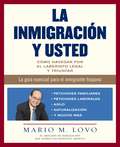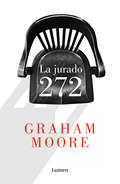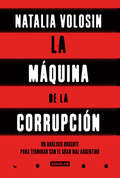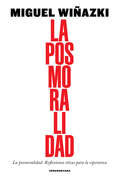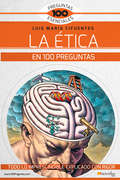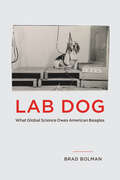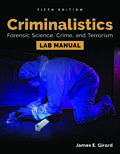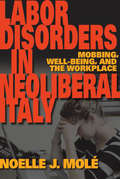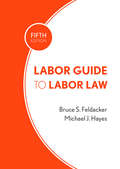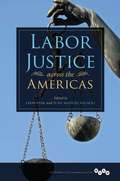- Table View
- List View
La inmigracion y usted: Como Navegar Por El Laberinto Legal Y Triunfar (Vintage Espanol Ser.)
by Mario LovoLa fuente de información inmigratoria más autorizada hasta la fecha, escrita por uno de los abogados más respetados de la nación.Dirigida exclusivamente al mundo hispanoparlante, La inmigración y usted es una guía esencial que resuelve todas las dudas relacionadas con las leyes inmigratorias de Estados Unidos. Desde el ciudadano americano que desea auspiciar a un familiar hasta el inmigrante que necesita legalizar su status, esta obra ofrece a todo el mundo la información necesaria para adentrarse en el complejo mundo de las visas, la residencia permanente y la ciudadanía americana. Escrita por Mario Lovo, el prestigioso abogado inmigratorio del programa Despierta América, esta obra pone especial énfasis en los asuntos de inmigración más comunes entre la comunidad hispana, tales como: El logro de la residencia a través de un familiarLa obtención de una visa de trabajoLos requisitos necesarios para obtener el asilo La participación en la Lotería de Visas El cumplimiento de los formularios requeridos para cada visa El modo de conseguir la ciudadanía americana La mejor manera de lidiar con la Corte de Inmigración La petición de visa en caso de residir fuera de Estados Unidos Cada uno de los capítulos de La inmigración y usted explica con detalle cómo proceder, paso a paso, durante el proceso de solicitud de visa. En ellos encontrará reproducciones de todos los formularios claves junto con su traducción al español, consejos para evitar los errores más comunes cometidos por los solicitantes y respuestas a las preguntas más frecuentes sobre cada visa. Relatado en un lenguaje sencillo y de fácil comprensión, La inmigración y usted es un libro imprescindible para todo inmigrante que sueña vivir mejor y de manera más segura en Estados Unidos.
La inmigracion y usted: Como navegar por el laberinto legal y triunfar (Vintage Espanol Ser.)
by Mario LovoLa fuente de información inmigratoria más autorizada hasta la fecha, escrita por uno de los abogados más respetados de la nación.Dirigida exclusivamente al mundo hispanoparlante, La inmigración y usted es una guía esencial que resuelve todas las dudas relacionadas con las leyes inmigratorias de Estados Unidos. Desde el ciudadano americano que desea auspiciar a un familiar hasta el inmigrante que necesita legalizar su status, esta obra ofrece a todo el mundo la información necesaria para adentrarse en el complejo mundo de las visas, la residencia permanente y la ciudadanía americana. Escrita por Mario Lovo, el prestigioso abogado inmigratorio del programa "Despierta América", esta obra pone especial énfasis en los asuntos de inmigración más comunes entre la comunidad hispana, tales como: El logro de la residencia a través de un familiarLa obtención de una visa de trabajoLos requisitos necesarios para obtener el asilo La participación en la Lotería de Visas El cumplimiento de los formularios requeridos para cada visa El modo de conseguir la ciudadanía americana La mejor manera de lidiar con la Corte de Inmigración La petición de visa en caso de residir fuera de Estados Unidos Cada uno de los capítulos de La inmigración y usted explica con detalle cómo proceder, paso a paso, durante el proceso de solicitud de visa. En ellos encontrará reproducciones de todos los formularios claves junto con su traducción al español, consejos para evitar los errores más comunes cometidos por los solicitantes y respuestas a las preguntas más frecuentes sobre cada visa. Relatado en un lenguaje sencillo y de fácil comprensión, La inmigración y usted es un libro imprescindible para todo inmigrante que sueña vivir mejor y de manera más segura en Estados Unidos.From the Trade Paperback edition.
La intermitencia
by Andrea CamilleriUn thriller descarnado, de ritmo implacable, en el que sus protagonistas aparecen reducidos a los instintos más básicos que motivan sus actos: el deseo, el odio, la venganza, o sea, en definitiva, la pura y dura erótica del poder. La empresa Manuelli constituye un potente conglomerado que sostiene la economía de Italia y da trabajo a miles de personas. Y su director general, Mauro de Blasi, un ejecutivo que hace gala de toda la firmeza, la elegancia diplomática y la ferocidad que exige el cargo. Sin embargo, Mauro tiene un problema: últimamente padece una especie de «apagones neurológicos» en los que, durante unos segundos, no oye, se le nubla la vista y se queda paralizado, como si no estuviera presente. No obstante, a pesar de estos paréntesis forzosos, Mauro pergeña un plan para absorber Artenia, una compañía mucho más pequeña que está al borde de la quiebra, mediante una operación maquiavélica que debe procurarle una buena tajada. Pero no todo se desarrolla de la forma prevista... Una serie de personajes -desde un subdirector de personal amante de la poesía y una mujer con pocas luces hasta una joven hermosa e inteligente y una secretaria fiel pero demasiado confiada- se erigen en incómodos obstáculos e interfieren en los planes del corrupto Mauro de Blasi. El gran maestro Andrea Camilleri nos adentra en un entorno sacudido por la crisis económica, proclive a excesos e irregularidades de todo tipo so pretexto de que «todo vale» para sobrevivir en circunstancias tan difíciles. Reseña:«Sin caer en las trampas de la retórica ni en las insidias morales, Camilleri aborda en La intermitencia la situación de la Italia actual. Con una prosa reflexiva y milimetrada, y diálogos muy incisivos, esta novela es un alegato contra quienes enarbolan siempre la bandera de los triunfadores.»SoloLibri
La jurado 272
by Graham MooreLA VERDAD ES LA MEJOR DEFENSA, PERO ¿CUÁL ES LA VERDAD? UN THRILLER LEGAL PARA HACER HISTORIA, POR EL GANADOR DEL OSCAR AL MEJOR GUION EN DESCIFRANDO ENIGMA «Descarga una jeringuilla de adrenalina en el corazón de Doce hombres sin piedad y obtendrás La jurado 272»A. J. Finn, autor de La mujer en la ventana Jessica, la hija adolescente del gran magnate de Los Ángeles Lou Silver, desaparece mientras volvía a casa del colegio. Su profesor, Bobby Nock, un afroamericano de veinticinco años, se convierte en el principal sospechoso cuando salen a la luz unos mensajes ilícitos que había intercambiado con la alumna y se halla sangre de la víctima en su coche. El proceso judicial se convierte en el más mediático de la última década. La fiscalía cree estar ante un caso sólido y fácil de ganar, pero Maya Seale, una joven que forma parte del jurado popular, está convencida de la inocencia de Bobby y comenzará a influir en el resto de los miembros para declararlo no culpable. Esta controvertida decisión, que cambiará el destino de todos para siempre, es cuestionada diez años después, cuando el caso se reabre y la carrera de Maya, ahora abogada de prestigio, se tambalea. Y también se verán sacudidas las vidas, llenas de secretos, de los jurados y la de la propia familia Silver, mientras se ha perdido todo rastro de Bobby. Inspirándose en su propia experiencia como miembro de un jurado, el ganador del Oscar al mejor guion por Descifrando enigma nos impacta con «un thriller legal desenfrenado con giros ingeniosos y flashbacks sorprendentes. Moore combina con gran destreza la impecable construcción de personajes con revelaciones cada vez más explosivas en una historia que parece hecha para la gran pantalla» (Library Journal). «El thriller imprescindible del año.»The Sunday Express Reseñas:««Una excelente novela que dirige una mirada mordaz al sistema judicial norteamericano, al escrutinio de los medios, al racismo. Moore ha inventado un nuevo canon para los thrillers legales.»Publishers Weekly «El thriller imprescindible del año.»The Sunday Express «Una trama adictiva y un ritmo vertiginoso.»Booklist «El thriller más apasionante que he leído en más de una década.»Sophie Hannah «El ritmo imparable e hipnótico mantiene al lector pegado a las páginas.»Crime Time «Brillante. [...] La trayectoria de Moore como guionista explica lo bien que está construida la trama y la excelente caracterización de los personajes. Thriller del mes.»The Sunday Times «Descarga una jeringuilla de adrenalina en el corazón de Doce hombres sin piedad y obtendrás La jurado 272.»A. J. Finn «Enormemente entretenido.»The Observer «Un thriller judicial desenfrenado con giros ingeniosos y flashbacks impactantes. [...] Moore combina de manera experta la diestra construcción de personajes con revelaciones cada vez más explosivas en una historia que parece hecha para la gran pantalla.»Library Journal «Enrevesado, rítmico y con un desenlace del que la propia Agatha Christie hubiese estado orgullosa.»Shots E-Mag «Una tensa, emocional, sobresaliente lectura que me enganchó hasta la última página.»Caroline Kepnes
La justicia y sus puñetas: Nueva antología del disparate judicial
by Paco Pardo Quico Tomás-ValienteUna mirada lúcida y entretenida a la justicia española. Disfruta de esta crónica afilada de una sociedad que se retrata en sus juzgados y tribunales. La toga, el reconocible uniforme de trabajo de los jueces, se caracteriza por un sobrio color negro que contrasta con los blancos puños bordados que rematan sus mangas. El origen de estas puñetas, protagonistas indiscutibles de su vestimenta, se remonta a varios siglos atrás y encierra un simbolismo interesante, pues su confección, al igual que las sentencias de los magistrados que las llevarían, requería de un importante esfuerzo de concentración y habilidad, así como de una labor concienzuda y delicada, comparable a la de los togados. Esos blancos puños bordados con filigranas y encajes simbolizan aquí las sentencias que se desvían de los rectos caminos de la Justicia e, incluso, del simple sentido común.A lo mejor eso les valdrá a los autores el calificativo de puñeteros, pero están dispuestos a asumirlo. ¿Cómo pudo un tribunal considerar probado que un farmacéutico tocaba las nalgas de sus empleadas y las besaba sin su consentimiento, mientras les proponía compartir siesta en un hotel y, no obstante, anular la condena por acoso sexual que había impuesto un juzgado madrileño? ¿Cómo puede considerar el Constitucional que demoler tu casa no supone ninguna violación del domicilio? ¿Y cómo puede ser condenada una lesbiana como hombre? ¿O considerar un juez que «si a una mujer bien vestida la ves, maltratada no es»? Casos como éstos, recogidos en este libro por dos veteranos periodistas de tribunales, podrían ser motivo suficiente como para mandar a la Justicia... a hacer puñetas. En cualquier caso, con toda seguridad, serán razón suficiente paradisfrutar de la lectura amena de esta crónica afilada de una sociedad que se retrata en sus juzgados y tribunales.
La lista del juez
by John GrishamUn thriller lleno de tensión y con una premisa impactante:¿y si un asesino en serie buscado durante más de veinte años fuera un juez en ejercicio? Lacy Stoltz se ha encontrado en numerosas ocasiones frente a problemas de corrupción en su trabajo como investigadora de la Comisión de Conducta Judicial de Florida. Pero nada la ha preparado para el caso que una asustada pero decidida desconocida quiere poner en sus manos. El padre de Jeri Crosby fue asesinado hace veinte años. Su muerte sigue sin resolverse pero Jeri tiene un sospechoso al que ha estado siguiendo de manera obsesiva durante dos décadas. En el camino, ha descubierto otras víctimas. Sus sospechas son firmes pero las pruebas parecen imposibles de conseguir. El culpable es inteligente, paciente y siempre va un paso pordelante de la policía. Es el más brillante de los asesinos en serie. Conoce los procedimientos, el trabajo de investigación y, sobre todo..., conoce la ley. Se trata de un juez de Florida de la jurisdicción de Lacy. Y tiene una lista con los nombres de todos sus objetivos, personas inocentes que han tenido la mala suerte de cruzarse en su camino y ofenderle de alguna manera. ¿Podrá detenerle Lacy sin convertirse en su próxima víctima? La lista del juez es la más sorprendente y escalofriante novela de John Grisham hasta la fecha. Sobre la novela han dicho:«Una de las mejores novelas de suspense del año. Un impactante libro de primer nivel que hará que merezca la pena que pases toda la noche en blanco hasta acabarlo».The Wall Street Journal «El mejor autor vivo de thriller».Ken Follet «Además de lashabituales virtudes de Grisham: una idea llamativa, una trama impecable y una vívida panorámica social, lo que aquí resulta impresionante es su disposición para afrontar nuevos desafíos».The Sunday Times «Las sorpresas no dejan de llegar rápidas y en abundancia en este elegante thriller con el que es imposible parar de leer».The Sun «Un excelente thriller repleto de tensión trepidante».Irish Independent «De lectura obligatoria».SAGA Magazine
La máquina de la corrupción: Un análisis urgente para terminar con el gran mal argentino
by Natalia VolosinEn un análisis del pasado y la actualidad, Natalia Volosin, la experta más importante sobre corrupción de la Argentina, descubre cuáles son los orígenes y las consecuencias de un mal que mantiene al país al margen de la ley, y aporta una salida institucional real y posible. ¿Por qué a los argentinos se nos considera corruptos? ¿La corrupción es una excusa de la derecha? ¿Es un mal de la izquierda? ¿Es un rasgo cultural que llevamos en la sangre o responde a fallas estructurales de nuestra democracia? ¿Las empresas son víctimas de los políticos o son parte del problema? ¿Por qué la justicia no lo resuelve? ¿Qué tiene que ver la corrupción con nuestra historia de autoritarismo y subdesarrollo? ¿Cómo afecta a los más vulnerables? En un revelador análisis del pasado y de la actualidad, Natalia Volosin, la experta más importante sobre el tema en la Argentina, demuestra que a la máquina de la corrupción no le importa el modelo económico ni el partido que gobierna. Para la autora estamos, como a fines de los 90, ante una gran oportunidad de atacar en serio un conflicto que no resiste más improvisación ni hipocresía. Para hacerlo, propone reformas institucionales profundas y una salida por arriba de la grieta que vincula la corrupción a los derechos humanos. Es hora de preguntarnos, de verdad, si queremos seguir viviendo al margen de la ley.
La patria y la muerte: Los crímenes y horrores del nacionalismo mexicano
by José Luis Trueba LaraTras la brutalidad de la Revolución, los sobrevivientes necesitaban una esperanza y el nacionalismo se la dio. Pero a un costo altísimo: muerte y mentira. El discurso oficial asienta que el amor a México es obligatorio, eterno, inamovible y perfecto. No es así. El actual nacionalismo mexicano es una invención posrevolucionaria, fomentado para crear un sentido de unidad y de propósito tras la matanza vivida entre 1910 y 1917. Y eso es lo de menos. Ese patriotismo fue una excusa para perpetrar algunas de las peores atrocidades que se han cometido en suelo patrio. Discriminación, racismo, clasismo y exclusión son sus caras menos oscuras. Las peores se llaman odio, expulsión, destierro, asesinato y genocidio. Esta obra señala el negro camino que ha seguido la devoción hacia México y la impunidad de la que ha gozado. Hoy, como nunca, se vuelve necesario reflexionar sobre el tema de esta obra: ¿a qué deliriosnos puede llevar el nacionalismo desatado?
La pluralidad del mundo
by Hannah ArendtLa obra de Hannah Arendt sintetizada en esta antología esencial e imprescindible. No hay nada más radical que un clásico. Hannah Arendt, la gran pensadora del siglo XX, es sin duda fundamental para afrontar los desafíos del XXI. Abordó todas las cuestiones clave de su tiempo, desde el antisemitismo hasta el totalitarismo, los orígenes de la democracia, la crisis de la autoridad, los fundamentos de la educación y la estética o el problema del mal en la modernidad. Toda su obra está sintetizada en esta antología esencial e imprescindible. ------------- radical: adj. Perteneciente o relativo a la raíz. «Clásicos Radicales» nace con la misión de recuperar algunos de los libros más emblemáticos del sello que en su día formularon una idea nueva u ofrecieron una mirada original y pertinente sobre las grandes cuestiones universales.Ausentes de las librerías durante demasiado tiempo pero recordados y buscados por los lectores más despiertos, estos textos esenciales de disciplinas como la filosofía, la ética, la historia, la sociología, la economía, la antropología, la psicología y la política mantienen su plena vigencia y vuelven hoy con fuerza para iluminar nuestro presente. ------------- Reseña:«Hannah Arendt volvió a pensar el espacio público después de su destrucción y nosotros debemos volver a ella para prevenir que se destruya de nuevo.»Andreu Jaume
La posmoralidad: Reflexiones éticas para la esperanza
by Miguel WiñazkiMiguel Wiñazki recorre valientemente los temas más difíciles que enfrenta la sociedad argentina. Desde por qué legitimamos el escrache o un corte de calle hasta por qué triunfan líderes fascistas y cómo fue que el barrabravismo sustituyó la política. El nuevo libro de Miguel Wiñazki es una invitación a salir de la vorágine y pensar algunos de los dilemas éticos que afectan más profundamente a la sociedad argentina. ¿Cuál es el origen simbólico del escrache? ¿De dónde proviene la idea de que cortar una calle es legítimo? ¿Cómo se construyen la adhesión y la congregación por parte de líderes fascistas y populistas? ¿Qué hay detrás de la devoción a un psicópata? ¿Cómo se diseña la arquitectura del fanatismo, de una tribuna cautiva? ¿De qué manera el barrabravismo sustituyó a la política? ¿Por qué permitimos la distorsión de la verdad? ¿Cómo puede ser que hombres y mujeres que representan la lucha por los derechos humanos en nuestro país defiendan gobiernos autoritarios -como el de Maduro en Venezuela- o justifiquen ataques terroristas? ¿Por qué nos cuesta tanto hablar con la verdad acerca del número de desaparecidos que dejó la dictadura militar? Reina la posmoralidad, la indiferencia en torno a la ética. Sin embargo, no todo es oscuridad. La censura ha muerto: la multiplicidad de redes sociales barrió con cualquier obstrucción informativa. Pero también muchas personas son capaces de morir por una selfie. En tiempos como estos, Wiñazki promueve una ética para la esperanza a través de inspiradoras y breves reflexiones. Porque, como dice en este libro, podemos tener en nosotros mismos todos los sueños del mundo.
La prohibición: Un siglo de guerra contra las drogas. De las restricciones al cultivo de opio, coca y cannabis a la intervención de Estados Unidos en Latinoamérica
by ThcEl más completo recorrido por la historia de la prohibición de las drogas, desde las guerras del opio entre China y el Imperio Británico a las actuales guerras narcos, pasando por la Ley Seca, las anfetaminas nazis y el Plan Cóndor. La prohibición es un estado de la cultura. En un mundo que aún se resiste a la legalización, seguir investigando es imprescindible. A través de este recorrido minucioso que va desde las guerras del opio entre China y el Imperio Británico del siglo XIX a las actuales intervenciones de la CIA y la DEA en México y Colombia, pasando por la Ley Seca, el uso de anfetaminas entre las tropas de la Alemania nazi, la cruzada contra el coqueo en los países andinos y el Plan Cóndor, La prohibición tiende un hilo común entre hechos aparentemente inconexos, identifica a los actores relevantes de esta larga saga y plantea una serie de hipótesis sobre cómo es posible que la prohibición de algunas sustancias psicoactivas se haya transformado en la convención represiva más extendida a nivel global, así como en fuente de la mayor y más letal actividad criminal del mundo. «Esta no es una historia de las drogas ni una historia del narcotráfico, es una historia de la Prohibición. El proyecto siempre tuvo un rumbo seguro y límites precisos: retratar y analizar la lucha despiadada contra personas que consumen determinadas sustancias y quienes más se exponen al proveerlas; todo en nombre de una moral racial y colonialista, en beneficio de un complejo entramado médico, policial, judicial, político, militar, industrial, farmacéutico y financiero. La llamada 'guerra a las drogas', sostiene Suppa Altman, constituye un fenómeno moderno regido por el capitalismo y la globalización que se ha ido desmadrando porque nunca acabará. Un negocio cruento. Cuanto más se aprieta, más sangre y dinero sale. El genocidio por goteo de nuestra América y 'el desmadre económico, político y social', como plantea el autor, son factores que justifican una lectura urgente de este trabajo. Las citas de especialistas, informes, leyes locales, convenciones internacionales y libros deben destacarse. Aportan un índice para la búsqueda de información en este mar desconocido de la prohibición, en el que rescata a personajes e investigaciones censuradas para evitar la aplicación de una política de drogas centrada en la evidencia y el respeto por los derechos humanos.»Del prólogo de Emilio Ruchansky
La puerta estrecha
by André GideNarrada en forma de confesión íntima, este libro bellísimo denuncia los extravíos de una moral austera y puritana, capaz de negar las leyes de la naturaleza y de la vida. Jérôme Palissier es un delicado joven parisino que pasa los veranos en la casa de campo de su tío, en Normandía. Durante uno de esos veranos él y su prima Alissa se enamoran profundamente. Sin embargo, ella se convence poco a poco de que la apasionada alma de su amado corre peligro; para salvarlo, decide recorrer el camino de la renuncia y el ascetismo espiritual. Reseña:«Gide, a quien he podido admirar por vez primera en este libro, es dueño inusitado del mundo que describe. En él todo sirve a un propósito, y de esa firmeza nacen las finas ramificaciones que, como la savia, alimentan al libro apaciblemente, hasta sus márgenes inconmensurables.»Rainer Maria Rilke
La soberanía del bien
by Iris MurdochLa gran aportación filosófica de Iris Murdoch en el centenario de su nacimiento. Antes de convertirse en la gran novelista que fue, Iris Murdoch se dedicó intensamente a la filosofía, enfrentándose con valentía a los círculos analíticos y existencialistas de la época y buscando un camino de salida en el páramo de la posguerra europea. Especialista en Platón, relacionada con la escuela de Wittgenstein, pero siempre radicalmente independiente, Murdoch reunió en La soberanía del bien (1970) tres conferencias que resumen lo que había sido su investigación filosófica desde la década de 1950. A diferencia de la mayoría de sus colegas en Oxford y Cambridge, Murdoch estaba interesada sobre todo en la vida moral y en las posibilidades reales que el ser humano tiene de hacerse mejor persona. La idea del Bien en un mundo sin Dios fue siempre su principal preocupación y a ella le dedica estos tres ensayos combativos y edificantes. En esta edición, Andreu Jaume nos ofrece una nueva traducción anotada de este clásico del pensamiento así como un largo ensayo introductorio en el que se estudia la vida, la filosofía y las novelas de quien fue definida en su tiempo como «la mujer más brillante de Inglaterra». La crítica ha dicho:«Uno de los escasos libros modernos de filosofía que personas ajenas a la filosofía académica pueden encontrar realmente útil.»Mary Midgely «Excelente. Golpea en la raíz misma de nuestra autocomprensión contemporánea. Niega cosas que tendemos a entender como evidentes. Por esa sola razón ya vale la pena leer este breve libro.»The Guardian
La tiranía del mérito: ¿Qué ha sido del bien común?
by Michael J. SandelEl profesor de filosofía más famoso del mundo, analiza el fracaso del sistema meritocrático y aborda la pregunta más importante de nuestra época: ¿qué ha sido del bien común? Las sociedades occidentales padecen dos males relacionados, la desigualdad económica y la polarización política. En el marasmo resultante, parece que hemos perdido de vista la noción clave del bien común. En esta obra fundamental, Michael J. Sandel se plantea cómo recuperarla. Cuando solo hay ganadores y perdedores y la movilidad social se ha atascado, resulta inevitable la combinación de ira y frustración que alimenta la polarización y la protesta populista, además de reducir la confianza en las instituciones y en nuestros conciudadanos. Así no podemos hacer frente moralmente a los retos actuales. Sandel, premio princesa de Asturias de Ciencias Sociales y uno de los filósofos más prestigiosos de nuestra época, sostiene que para superar las crisis que asedian nuestras sociedades hemos de repensar las ideas de éxito y fracaso que han acompañado la globalización y el aumento de la desigualdad. La meritocracia genera una complacencia nociva entre los ganadores e impone una sentencia muy dura sobre los perdedores. Sandel defiende otra manera de pensar el éxito, más atenta al papel de la suerte, más acorde con una ética de la humildad y la solidaridad y más reivindicativa de la dignidad del trabajo. Con esos mimbres morales, La tiranía del mérito presenta una visión esperanzadora de una nueva política centrada por fin en el bien común.
La verdad del ensayo
by Germán Málaga RodríguezEl doctor Germán Málaga Rodríguez cuenta, con lujo de detalles, su versión de los acontecimientos. Desde su trabajo en la primera línea de atención de los enfermos por el COVID-19 hasta el estallido del escándalo mediático El médico e investigador Germán Málaga Rodríguez tuvo la misión de liderar el ensayo clínico para probar la eficacia de las candidatas a vacunas del laboratorio chino Sinopharm, el estudio más importante y ambicioso en este campo que se haya realizado en la historia del país. No obstante, las denuncias periodísticas que desembocaron en el caso «Vacunagate» peruano lo convirtieron en el blanco de la virulencia mediática y de graves acusaciones que nunca pudieron ser demostradas. En este libro, el doctor Málaga cuenta, con lujo de detalles, su versión de los acontecimientos. Desde su trabajo previo en la primera línea de atención de los enfermos de la COVID-19 y el inicio del ensayo clínico, hasta el estallido del escándalo mediático y los entretelones de las controversiales inoculaciones del expresidente Martín Vizcarra, entre otras autoridades y funcionarios. El testimonio del Doctor Málaga busca ahondar en cómo ocurrieron los hechos de un polémico caso que sacudió a la opinión pública. Se trata de un material fundamental para entender y determinar si realmente se cometió un acto de injusticia contra el autor de estas páginas, y para reflexionar sobre la posverdad y las narrativas que agobian nuestro tiempo.
La vida es un juego: Estrategia para Mario y Blanca
by Carlos MatallanasCarlos Matallanas, exdeportista y querido periodista deportivo afectado por la ELA, nos trae un breve y emocionante ensayo, estructurado a modo de manual de fútbol, sobre la importancia de tener una pasión. LAS REGLAS DE LA VIDA SON COMO LAS REGLAS DEL JUEGO: SE APRENDEN CON LA PRÁCTICA Y FORJAN EL CARÁCTER «Voy a hablaros de lo único que sé de verdad, la única disciplina que me llevó al eureka, donde encontré alguna respuesta crucial, que me hizo ser consciente de que algo, mucho o poco, había comprendido de este tinglado absurdo que llamamos vida». Carlos Matallanas, exdeportista y querido periodista deportivo, nos trae un breve y emocionante ensayo, estructurado a modo de manual de fútbol, sobre la importancia de tener una pasión. Nos habla de la vida como juego y del fútbol como metáfora de la existencia. Desde sus páginas, el autor transmite su amor por el deporte, pero utilizándolo como excusa para filosofar sobre temas como la perseverancia, la empatía, el respeto, la solidaridad o la resiliencia. El fútbol ha dado sentido a su vida, incluso para enfrentarse a su enfermedad, la ELA, que lo tiene inmovilizado en una cama desde la que escribe estas líneas a modo de ensayo para sus sobrinos y para todo aquel que lo quiera leer, «porque siempre habrá un niño mirándote y al que le debes dar el mejor de los testigos: tu ejemplo».
La vida que mereces: La cuarta vía para la realización personal en un entorno sostenible
by Álex Rovira Pascual OlmosUna alternativa al sistema actual basada en la búsqueda de un sendero que armonice lo material con lo espiritual, la productividad con la satisfacción personal. Vivimos en un entorno profundamente disfuncional que está dando lugar a mayores índices de corrupción, desempleo, desesperanza y la creciente falta de confianza en nuestros semejantes. Nos encontramos, por lo tanto, ante un reto crucial: recomponer, redefinir o reinventar un sistema social y político capaz de brindarnos a todos una vida digna, una convivencia fructífera y sostenible, en la que no tenga cabida el abuso, la especulación, el cortoplacismo ni la depredación. Ante el fracaso de otras vías, este libro pretende buscar soluciones que tengan en cuenta los ámbitos personales, laborales y sociales, en pos de un equilibrio básico o esencial que esté al alcance de todos. La alternativa que plantea La vida que mereces se basa en la construcción de un camino que armonice lo material con lo espiritual, la productividad con la satisfacción personal, la competitividad del sistema con la autorrealización de las personas. Álex Rovira y Pascual Olmos proponen un nuevo modelo asentado en tres principios: las motivaciones profundas de las personas, la creatividad y una tecnología social y ecológicamente responsable. Reseñas:«Estamos produciendo seres humanos enfermos para tener una economía sana.»Erich Fromm «Más allá de la ecología está el Eco-Ser, una nueva forma de armonía y equilibrio moral, que trata de asumir la naturaleza como parte de nuestro espíritu. En La vida que mereces, los autores Pascual Olmos y Álex Rovira trazan la Cuarta Vía para esa conquista.»Manuel Vicent, escritor y periodista «Lo único que nos llevaremos de este mundo es lo que hayamos sido capaces de dar. El líder en La vida que mereces lo da todo, busca la felicidad de los demás, saca lo mejor de cada quien y se fija en los aspectos positivos del equipo, que todos tenemos.»Luis Conde, socio fundador de Seeliger y Conde «La vida que mereces plasma la esencia de una sociedad y sus empresas cimentadas en el valor de las personas, que se asocia a una gestión ejemplar, ya sea pública o privada. La búsqueda de un futuro lleno de esperanza que merezca ser tomado y vivido por nuestros hijos como un legado ético.»Juan A. Corbalán, campeón internacional de baloncesto y director de teamsoul «¿La sostenibilidad se contrapone a la rentabilidad de una empresa? ¿La eficacia y la humanidad son incompatibles en el buen directivo? ¿Son los valores la antesala de la creación de valor? Los autores Pascual Olmos y Álex Rovira nos explican estas y otras interacciones que se dan en nuestra vida, en la empresa y en el mundo en que nos ha tocado vivir.»Alberto Durán, vicepresidente ejecutivo de la Fundación ONCE «Innovación social, sentido de la vida, compromiso, cuidar el talento y alentarlo, convicción, utopía... son las cuestiones sobre las que Pascual Olmos y Álex Rovira ponen el foco para trazar una Cuarta Vía que, como la besana, alumbra nuevos modelos de gestión, donde la naturaleza y la humanidad se abrazan y se sostienen.»Rosalía Mera, presidenta de la Fundación Paideia Galiza
La Ética en 100 preguntas (100 Preguntas esenciales)
by María Luis Cifuentes PérezLas respuestas de la Ética a los grandes retos del nuevo humanismo: la manipulación genética, el uso de la tecnología, la bioética y la ética ecológica, la ética política, los derechos de los animales, la sostenibilidad y el sistema económico globalizado. ¿Las reglas morales se aprenden o son innatas? ¿Se pueden transgredir las leyes morales? ¿Son los políticos mentirosos compulsivos? ¿Puede haber tantas morales como culturas humanas? ¿Es injusto el actual capitalismo globalizado? ¿Es el ser humano un homo tecnologicus? ¿Constituye el Proyecto Genoma Humano un progreso ético? ¿Se puede ya programar una vida transhumana? ¿Es la especie humana la dueña del universo? ¿Estamos aún a tiempo de no destruir el planeta Tierra?
La última cruzada del Papa (The Pope's Last Crusade - Spanish Edition) (The Pope's Last Crusade - Spanish Edition): Cómo un jesuita estadounidense ayudó al
by Peter EisnerBasándose en recursos sin explotar, entrevistas exclusivas y nueva investigación de archivos, La última cruzada del Papa por Peter Eisner es un emocionante relato que trae a la luz el valiente esfuerzo del Papa Pío XI para condenar el nazismo y la política del Tercer Reich —una cruzada que podría haber cambiado el curso de la segunda guerra mundial.Un escandaloso relato de intriga y suspenso, ilustrado con dieciséis páginas de fotos de archivos, La última cruzada del Papa: cómo un jesuita estadounidense ayudó a la campaña del Papa Pío XI para detener a Hitler ilumina la atrevida pero poco conocida campaña de este líder religioso, una batalla espiritual y política que se descarriló por la muerte de Pío XI tan sólo unos meses más tarde. Peter Eisner revela cómo Pío XI tuvo la intención de rechazar inequívocamente el nazismo en uno de los pronunciamientos sin precedentes y progresistas jamás emitidos por el Vaticano, y cómo un grupo de clérigos conservadores conspiró para prevenirlo.Durante años, se han conocido sólo partes de esta historia. Eisner ofrece una nueva interpretación de este acontecimiento histórico y las figuras poderosas en su centro en una obra esencial que proporciona una visión seria y plantea cuestiones controversiales que afectan nuestra época actual.
Lab Dog: A Beagle and His Human Investigate the Surprising World of Animal Research
by Melanie D.G. KaplanThe "remarkable" (Dr. Jane Goodall) story of a beagle&’s past, and the future of animal research When journalist Melanie D.G. Kaplan adopted her beagle Hammy, all she knew was that he had spent nearly four years in a research lab. Curious to know more about this gentle creature&’s past, as well as the broader world of animal research, Kaplan—with Hammy in tow—embarks on a quest for answers. How did Hammy end up in a research facility? Why are we still using millions of animals a year in experiments? What have we learned from them? Is there another way? In Lab Dog, Kaplan investigates the breeding and use of beagles for biomedical research, drug and product testing, and education. She takes readers on a journey, peeking behind laboratory doors and visiting with researchers, activists, ethicists, veterinarians, lawmakers, and innovators. Along the way, she finds thoughtful and caring humans on all sides of the debate, explores promising developments in nonanimal testing, and discovers puzzle pieces from Hammy&’s past. Equal parts journalism and love story, Lab Dog offers a nuanced view on our relationship with a species that we both love and exploit, and a reason to hope for a better future for all.
Lab Dog: What Global Science Owes American Beagles
by Brad BolmanTracing over a century of transformation in the relationship between humans and our “best friend,” from hunting companion to laboratory commodity to modern pet. Intrepid, docile, and cloaked in coats of white, black, and tan, beagles were one of the most popular breeds in the United States in the twentieth century. From Snoopy to dog shows, many Americans loved and identified with beagles. But during the same period, as scientists searched for a standard research dog, beagles emerged as something else: an ideal animal for laboratory experimentation. In Lab Dog, historian Brad Bolman explains how the laboratory dog became a subject of intense focus for twentieth-century scientists and charts the beagle’s surprising trajectory through global science. Following beagles as they moved from eugenics to radiobiology, pharmaceutical testing to Alzheimer’s studies, Lab Dog sheds new light on pivotal stories of twentieth-century science, including the Manhattan Project, tobacco controversies, contraceptive testing, and behavioral genetics research. Bolman shows how these experiments shaped our understanding of dogs as intelligent companions who deserve moral protection and socialization—and in some cases, daily medication. Compelling and accessible, Lab Dog tells the thorny story of the participation of beagles in science, including both their sacrifices and their contributions, and offers a glimpse into the future of animal experimentation.
Lab Manual eBook for Criminalistics: Forensic Science, Crime, and Terrorism - 365-Day Access
by James E. GirardLab Manual eBook for Criminalistics: Forensic Science, Crime, and Terrorism is a digital-only eBook lab manual with 365-day access. This Lab Manual eBook consists of 12 related experiments created by James Girard and arranged by chapter. It provides hands-on practice to students, allowing them to apply key concepts presented in the text or eBook.
Labor Disorders in Neoliberal Italy
by Noelle J. MoléPsychological harassment at work, or "mobbing," has become a significant public policy issue in Italy and elsewhere in Europe. Mobbing has given rise to specialized counseling clinics, a new field of professional expertise, and new labor laws. For Noelle J. Molé, mobbing is a manifestation of Italy's rapid transition from a highly protectionist to a market-oriented labor regime and a neoliberal state. She analyzes the classification of mobbing as a work-related illness, the deployment of preventive public health programs, the relation of mobbing to gendered work practices, and workers' use of the concept of mobbing to make legal and medical claims, with implications for state policy, labor contracts, and political movements. For many Italian workers, mobbing embodies the social and psychological effects of an economy and a state in transition.
Labor Guide to Labor Law
by Bruce S. Feldacker Michael J. HayesLabor Guide to Labor Law is a comprehensive survey of labor law in the private sector, written from the labor perspective for labor relations students and for unions and their members. This thoroughly revised and updated fifth edition covers new statutes, current issues, and the latest developments in labor and employment law. The text emphasizes issues of greatest importance to unions and employees. Where the law permits a union to make certain tactical choices, those choices are pointed out. Material is included on internal union matters that tend to be ignored in management texts. Bruce S. Feldacker and Michael J. Hayes cover applicable labor law principles from a union's initial organizing campaign to the mature bargaining relationship, including such subjects as the employee right to engage in protected concerted activity, the duty to bargain, labor arbitration, the use of strikes, picketing and other economic weapons in resolving a labor dispute, the duty of fair representation, internal union regulation, and employment discrimination. This book is also a useful reference and review for full-time union officers and representatives who have a working knowledge of labor law but wish to brush up on certain points as needed in their work. Both authors have extensive experience in the construction field, and they have been careful to include material on those aspects of labor law that are unique to that field. Labor Guide to Labor Law is structured to present an unbiased and comprehensive explanation of labor law principles for anyone interested in the field. Thus, labor relations educators, as well as practitioners in the field representing labor, management, or individual employees, should also find the text suitable for their use. Each chapter includes a summary, review questions and answers, a restatement of "Basic Legal principles" with citations to key cases, and a bibliography for additional research.
Labor Justice across the Americas
by Leon Fink Juan PalacioOpinions of specialized labor courts differ, but labor justice undoubtedly represented a decisive moment in worker 's history. When and how did these courts take shape? Why did their originators consider them necessary? Leon Fink and Juan Manuel Palacio present essays that address these essential questions. Ranging from Canada and the United States to Chile and Argentina, the authors search for common factors in the appearance of labor courts while recognizing the specific character of the creative process in each nation. Their transnational and comparative approach advances a global perspective on the various mechanisms for regulating industrial relations and resolving labor conflicts. The result is the first country-by-country study of its kind, one that addresses a defining shift in law in the first half of the twentieth century. Contributors: Rossana Barragán Romano, Angela de Castro Gomes, David Díaz-Arias, Leon Fink, Frank Luce, Diego Ortúzar, Germán Palacio, Juan Manuel Palacio, William Suarez-Potts, Fernando Teixeira da Silva, Victor Uribe-Urán, Angela Vergara, and Ronny J. Viales-Hurtado.
